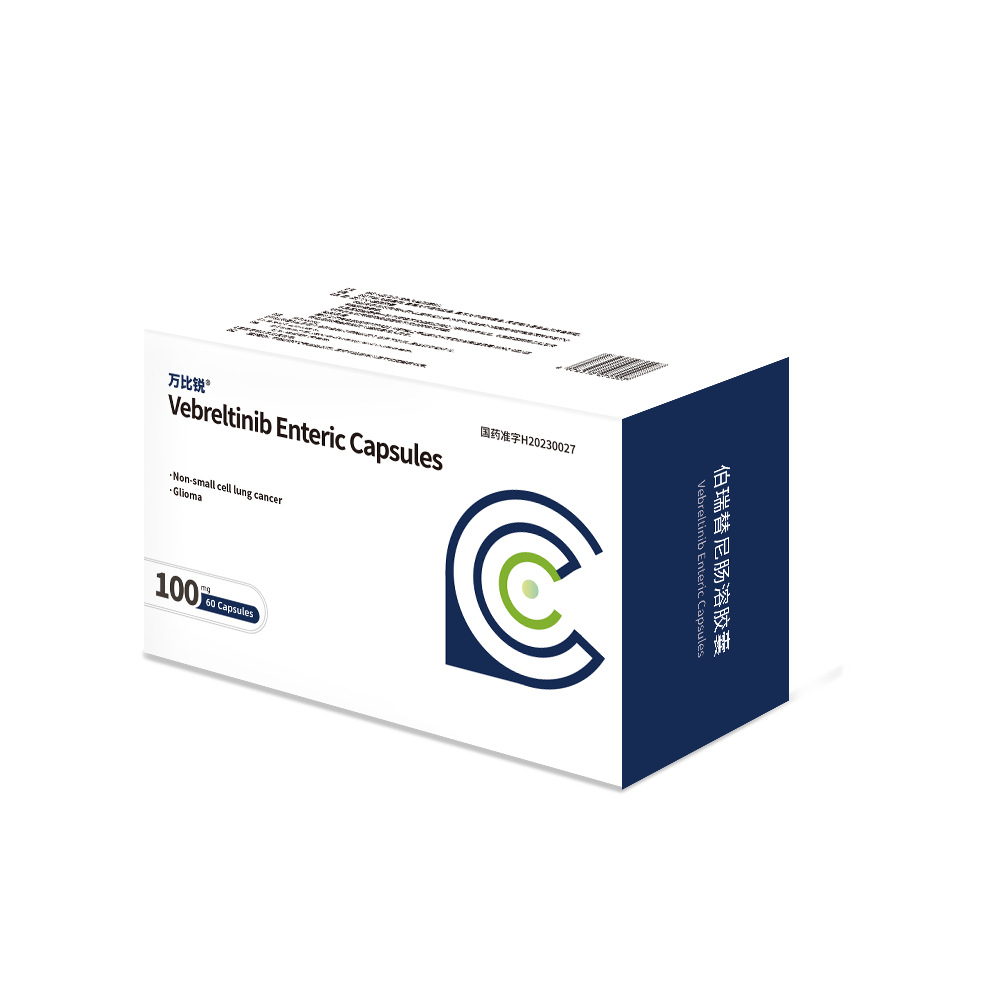You Are Leaving Avistone's Website
You have selected a link that will take you to a site maintained by a third party. Avistone provides this link as a service to website visitors. Avistone is not responsible for the privacy policy of any third party websites. We encourage you to read the privacy policy of every website you visit. Click 'Cancel' to return to Avistone's site or 'Continue' to proceed.
上市产品

PIPELINE & STRATEGY
- Drug
- Target
- Indication
- Preclinical
- IND
- Phase I
- Phase II
- Phase III
- NDA
- Approval
- Rights
- More
- MET Exon 14 Skipping
- ZM Fusion Gene
- MET Amplification
- MET Overexpression (In combination with Chemotherapy)
- NSCLC
- GBM
- NSCLC
- NSCLC
- China
- China
- China
- China
Vebreltinib (PLB1001)
Vebreltinib (PLB1001) is a Type I MET inhibitor independently developed by Beijing Avistone Biotechnology Co., Ltd.. Vebreltinib monotherapy has demonstrated significant clinical potential, with three indications successfully developed to date:
(1)In November 2023, Vebreltinib was officially approved in China for the first-line treatment of adult patients with locally advanced or metastatic non-small cell lung cancer (NSCLC) harboring mesenchymal-epithelial transition factor (MET) exon 14 skipping alterations. Vebreltinib is a globally best-in-class drug for this indication.
(2)In April 2024, the National Medical Products Administration (NMPA) of China officially approved Vebreltinib for the treatment of adult patients with IDH mutant astrocytoma (WHO grade 4) with the PTPRZ1-MET fusion who have experienced treatment failure in prior therapies or glioblastoma with LGG history. This marks the world's first fully approved as first-in-class small molecule targeted therapy for MET inhibition for gliomas.
(3)In June 2025, the National Medical Products Administration (NMPA) of China officially approved Vebreltinib for the treatment of patients with locally advanced or metastatic non-small cell lung cancer (NSCLC) harboring mesenchymal-epithelial transition (MET) amplification. This is the world's first approved targeted drug for the monotherapy of NSCLC patients with MET amplification, indicating the entry of MET-amplified NSCLC into the era of precision targeted therapy.
- EGFR Exon 20 Insertion
- EGFR Exon 20 Insertion
- PACC
- NSCLC
- NSCLC
- NSCLC
- USA
- China
- China
Andamertinib (PLB1004)
Andamertinib (PLB1004) is a third-generation small-molecule EGFR inhibitor with a novel structure. It can effectively and irreversibly target mutations such as EGFR exon 20 insertion and has the ability to penetrate the blood-brain barrier.
EGFR exon 20 insertion mutation is the third most common mutation form among non-small cell lung cancer patients with EGFR mutations, accounting for 4-12%. Patients carrying this gene mutation are resistant to the first-generation and second-generation EGFR inhibitors, as well as to the third-generation EGFR inhibitor, Osimertinib. The critical registration clinical study (KANNON Study) has confirmed that Andamertinib has significant therapeutic effects and safety for patients carrying this gene mutation.
+
Andamertinib
- MET Amplification/Overexpression after EGFR-TKI Resistance
- High MET Expression with EGFR Mutation
- NSCLC
- China
- China
Andamertinib (Global)
Vebreltinib + Andamertinib
The combination of the MET inhibitor Vebreltinib and the EGFR inhibitor Andamertinib has potential clinical benefits for the treatment of non-small cell lung cancer (NSCLC) patients with EGFR mutations accompanied by secondary MET amplification/overexpression, or EGFR mutations with concurrent MET amplification/overexpression.
- 2nd Generation C-MET Dysfunction
- NSCLC
- USA
- China
ANS01
ANS01 is a Type II MET inhibitor. Its ingenious molecular design makes ANS01 promising to become the most successful and rarest next-generation MET inhibitor globally.
+
Andamertinib
- EGFR mutation
- NSCLC
- Global
ANS01 + Andamertinib
The combination of the next-generation MET inhibitor ANS01 and the EGFR inhibitor can address the drug resistance caused by MET mutations that emerge following MET inhibitor monotherapy or combination therapies.
- ROS1&NTRK
- Solid Tumor
- Global
ANS03
ANS03 is capable of overcoming the problem of acquired drug resistance caused by previous Type I ROS1 inhibitors, and thus has a broader inhibitory spectrum of ROS1 kinase activity. This spectrum includes primary fusion mutations of the ROS1 kinase, as well as numerous secondary drug resistance mutations, such as the central β-sheet #6 (Cβ6) mutation (L2086F) of ROS1, SF mutations (G2032R and D2033N), and complex drug resistance mutations, etc.
- 4th Generation EGFR-TKI
- Solid Tumor
- Global
ANS02
The world-leading 4th generation EGFR-TKI.
- HER 2 Mutation NSCLC
- HER 2 Amplification BC & GC
- Solid Tumor
- Global
ANS05
The world-leading HER 20 mutation and HER 2 amplification inhibitor.
SCIENCE & ONGOING RESEARCH
- ACADEMIC ARTICLE
- GUIDELINE RECOMMENDATION
- CONFERENCE REPORT
- GLOBAL ONGOING RESEARCH
-
Latest Data of Vebreltinib on MET Amplification from the KUNPENG Study Published in The Lancet Oncology
Author:Yilong Wu, Yu Yao et al.
Time:2025-12-06
2025
12-06
View Details
-
Vebreltinib's Pivotal Registration Study Results in JCO
Author:Yi-Long Wu, Jin-Ji Yang et al.
Time:2024-07-26
2024
07-26
View Details
-
Mechanism of Vebreltinib in Glioma and Phase I Trial Results in Cell
Author:Tao Jiang, Humin Hu et al.
Time:2018-11-29
2018
11-29
View Details
-
New Progress of the KUNPENG Study: Research Findings on Vebreltinib for Advanced NSCLC with MET Amplification Presented at the 2025 ESMO Asia Congress
Author:Prof. Yilong Wu et al.
Time:2025-12-06
2025
12-06
View Details
-
[ESMO ASIA 2025 Express] Avistone Unveils Groundbreaking Research Findings: New Evidence for Treating MET-Altered NSCLC Patients with EGFR-TKI Resistance
Author:Prof. Caicun Zhou et al.
Time:2025-12-05
2025
12-05
View Details
-
Avistone Presents Latest Clinical Studies of Andamertinib (PLB-1004) in Advanced NSCLC with EGFR Exon 20 Insertions at 2025 ESMO
Author:Yilong Wu, Jinji Yang et al.
Time:2025-10-18
2025
10-18
View Details
- Research Title
- Site
- Status
- Details
-
A Study to Investigate ANS014004 in Participants With Locally Advanced or Metastatic Solid Tumors
Site:Global Status:Recruiting
View DetailsGlobal
Recruiting
-
A Study to Investigate ANS03 in Participants With Locally Advanced or Metastatic Solid Tumors
Site:Global Status:Recruiting
View DetailsGlobal
Recruiting














